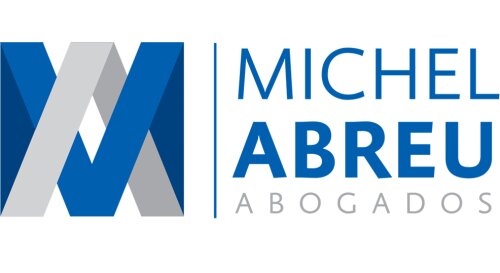Best Citizenship Lawyers in Dominican Republic
Share your needs with us, get contacted by law firms.
Free. Takes 2 min.
Or refine your search by selecting a city:
List of the best lawyers in Dominican Republic

Arciniegas Abogados, Attorneys at Law
30 minutes Free ConsultationAbout Citizenship Law in Dominican Republic
Citizenship in the Dominican Republic is governed by the country's constitution and various legislative acts. The Dominican Republic recognizes both jus soli (right of the soil) and jus sanguinis (right of blood) principles for acquiring citizenship. This means individuals born in the Dominican Republic or to Dominican parents are generally eligible for citizenship. Additionally, foreign nationals can acquire citizenship through naturalization, which involves meeting specific residency and legal requirements. The legal landscape ensures the protection and regulation of the rights and duties of Dominican citizens.
Why You May Need a Lawyer
Seeking legal advice is crucial for several situations related to citizenship in the Dominican Republic:
- Complex Application Process: The naturalization process can involve intricate legal requirements that a lawyer can help navigate.
- Dual Citizenship: If you are interested in maintaining or applying for dual citizenship, legal guidance might be essential due to the complexities involved.
- Denial of Application: In case of a rejected citizenship application, an attorney can provide assistance in understanding and possibly contesting the decision.
- Citizenship for Children: Lawyers can provide guidance on securing citizenship for children born outside the Dominican Republic to Dominican parents.
- Residency Requirements: Lawyers can help in understanding and fulfilling the residency requirements needed for naturalization.
Local Laws Overview
Several key aspects of Dominican citizenship laws are noteworthy:
- Constitutional Guidelines: The Dominican Constitution establishes who is considered a citizen, outlining rights for those born in the country and those with Dominican parentage.
- Naturalization Entities: Law No. 1683 is the principal statue governing naturalization, requiring residency and proficiency in Spanish.
- Dual Citizenship Policies: The Dominican Republic permits dual citizenship, allowing individuals to retain citizenship of another country.
- Loss of Citizenship: Citizens may lose their nationality if they engage in activities contradictory to allegiance to the Dominican state, such as serving in a foreign military without government approval.
- Renewal and Documentation: Laws regulate the renewal of citizenship-related documents, like passports, requiring proof of citizenship regularly.
Frequently Asked Questions
How can I obtain citizenship in the Dominican Republic?
There are several ways, such as being born in the Dominican Republic, having Dominican parentage, or meeting the requirements for naturalization as a foreign national.
Is dual citizenship allowed in the Dominican Republic?
Yes, the Dominican Republic allows dual citizenship, enabling citizens to retain or acquire another country's nationality without losing Dominican citizenship.
What is the process for naturalization?
Naturalization typically requires residing in the country for a specified period, demonstrating language proficiency, and a formal application to Dominican authorities.
What are the costs involved in applying for citizenship?
Costs can vary based on legal fees, application processing charges, and document preparation requirements, among others. Consulting with a lawyer for current fees is advisable.
How long does the naturalization process take?
The naturalization process can take several months to years, depending on the completeness of the documentation and governmental processing times.
Can my children obtain Dominican citizenship if they’re born abroad?
Yes, if at least one parent is Dominican, children born overseas can acquire citizenship, usually requiring registration with Dominican diplomatic offices.
What language requirements are there for citizenship?
Applicants for naturalization typically must demonstrate proficiency in Spanish, the official language of the Dominican Republic.
Can citizenship be revoked?
Yes, citizenship can be revoked under certain conditions, such as committing acts against the Dominican state, but the process involves legal proceedings.
Are there residency requirements for naturalization?
Yes, applicants must fulfill specific residency periods within the Dominican Republic before applying for naturalization, often a few years.
Do I need a lawyer to apply for citizenship?
While not legally required, hiring a lawyer can significantly simplify the process, helping to navigate legal requirements and avoid potential pitfalls.
Additional Resources
For further assistance, consider contacting the following:
- General Directorate of Migration: The governmental body overseeing migration and citizenship processes.
- Dominican Consulates: Useful for individuals outside the country needing assistance with citizenship processes.
- Legal Aid Clinics: Offer pro bono legal support for those requiring it for immigration and citizenship matters.
- Private Immigration Lawyers: Specialized attorneys who can offer tailored advice and handle specific legal requirements.
Next Steps
If you require legal assistance regarding citizenship in the Dominican Republic:
- Consult with a certified immigration lawyer experienced in Dominican citizenship law.
- Gather all necessary documentation as advised by your lawyer or a relevant legal authority.
- Prepare for any language proficiency tests and gather evidence of your residency, if applicable.
- Stay informed on the latest updates in citizenship laws by regularly checking official government publications or consulting legal professionals.
Lawzana helps you find the best lawyers and law firms in Dominican Republic through a curated and pre-screened list of qualified legal professionals. Our platform offers rankings and detailed profiles of attorneys and law firms, allowing you to compare based on practice areas, including Citizenship, experience, and client feedback.
Each profile includes a description of the firm's areas of practice, client reviews, team members and partners, year of establishment, spoken languages, office locations, contact information, social media presence, and any published articles or resources. Most firms on our platform speak English and are experienced in both local and international legal matters.
Get a quote from top-rated law firms in Dominican Republic — quickly, securely, and without unnecessary hassle.
Disclaimer:
The information provided on this page is for general informational purposes only and does not constitute legal advice. While we strive to ensure the accuracy and relevance of the content, legal information may change over time, and interpretations of the law can vary. You should always consult with a qualified legal professional for advice specific to your situation.
We disclaim all liability for actions taken or not taken based on the content of this page. If you believe any information is incorrect or outdated, please contact us, and we will review and update it where appropriate.
Browse citizenship law firms by city in Dominican Republic
Refine your search by selecting a city.















